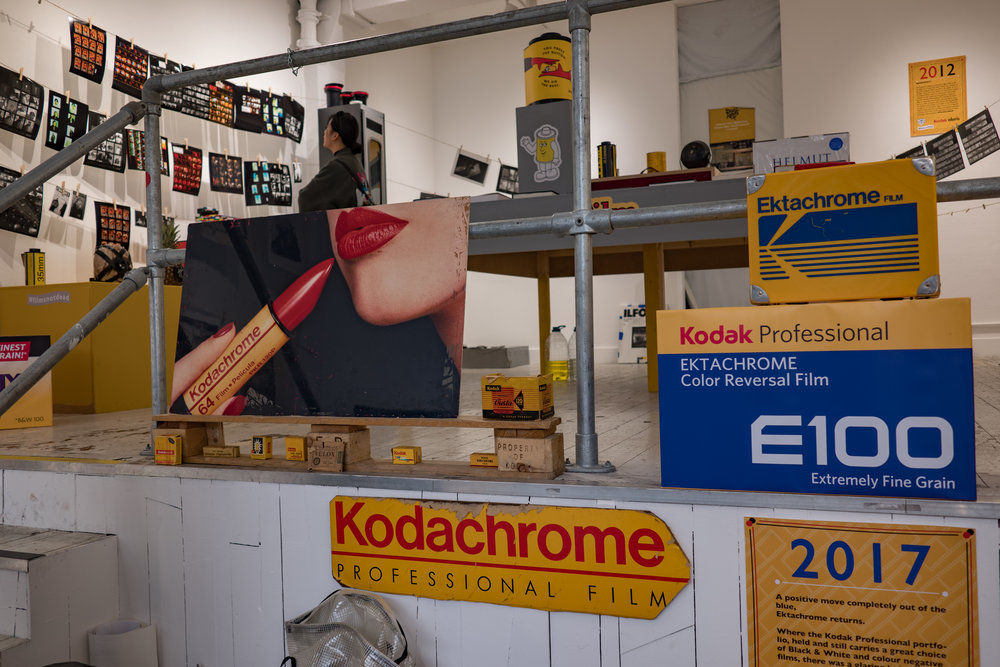
On Saturday I took myself off to the famous Brick Lane market in London’s East End to check out the pop-up store created by Tori and Charlie of the well-known Film’s Not Dead crew. The theme centred around the marketing slogan of the first Kodak Box Brownie: You press the button, we do the rest. With sponsorship from Kodak Alaris and Brightrooms, Tori and Charlie were able to mount an impressive display and organise a number of film workshops which were sold out by the time I put in an appearance.
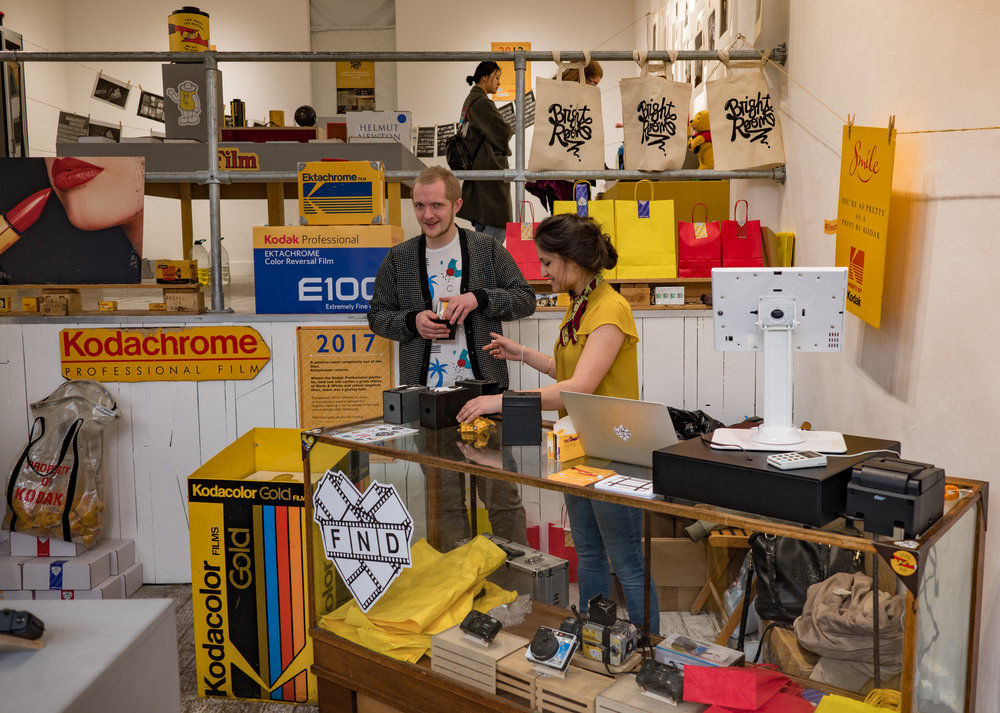
I arrived to find the film duo loading Brownies with new spools ready for the afternoon workshop where participants were handed a camera and told to go forth and make some pictures. Since all the workshops for the day were fully booked I didn’t have a chance to take part. I should have planned this earlier…
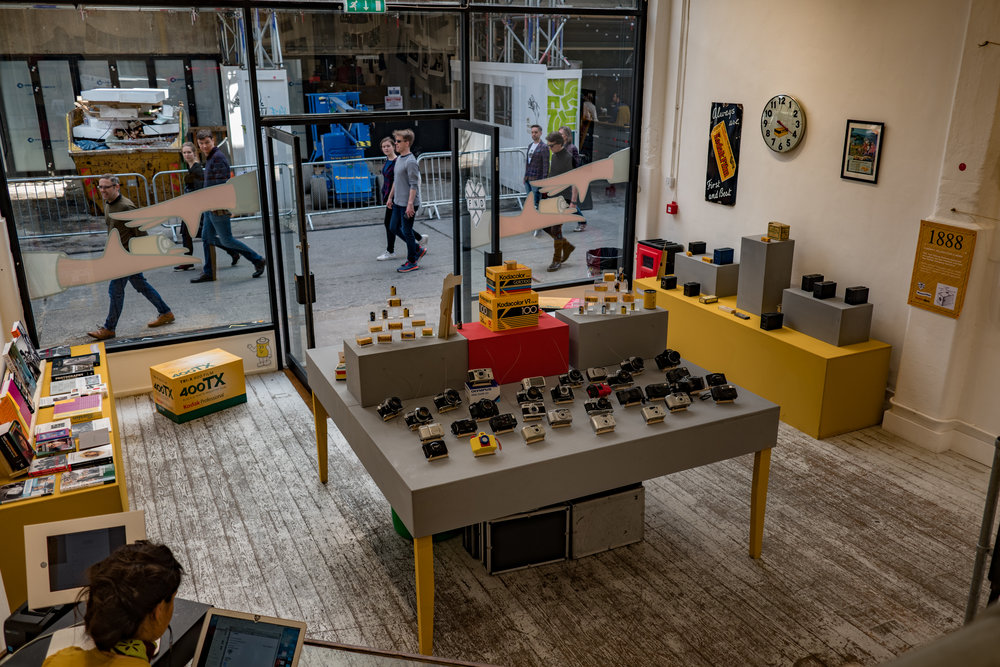
I did manage to bump into a Macfilos reader, Nico Diaz, who was coming to the end of his London vacation. Nico, it turns out, is one serious film buff. Around his neck was a very nice Leica M7 and Zeiss Biotin, but weighing down the right shoulder was the seriously impressive Fuji 6×9 Professional GW690 Mark III. “The negatives from this thing are stunning,” he told me. Nico does some fine photography as you can see from his website here.
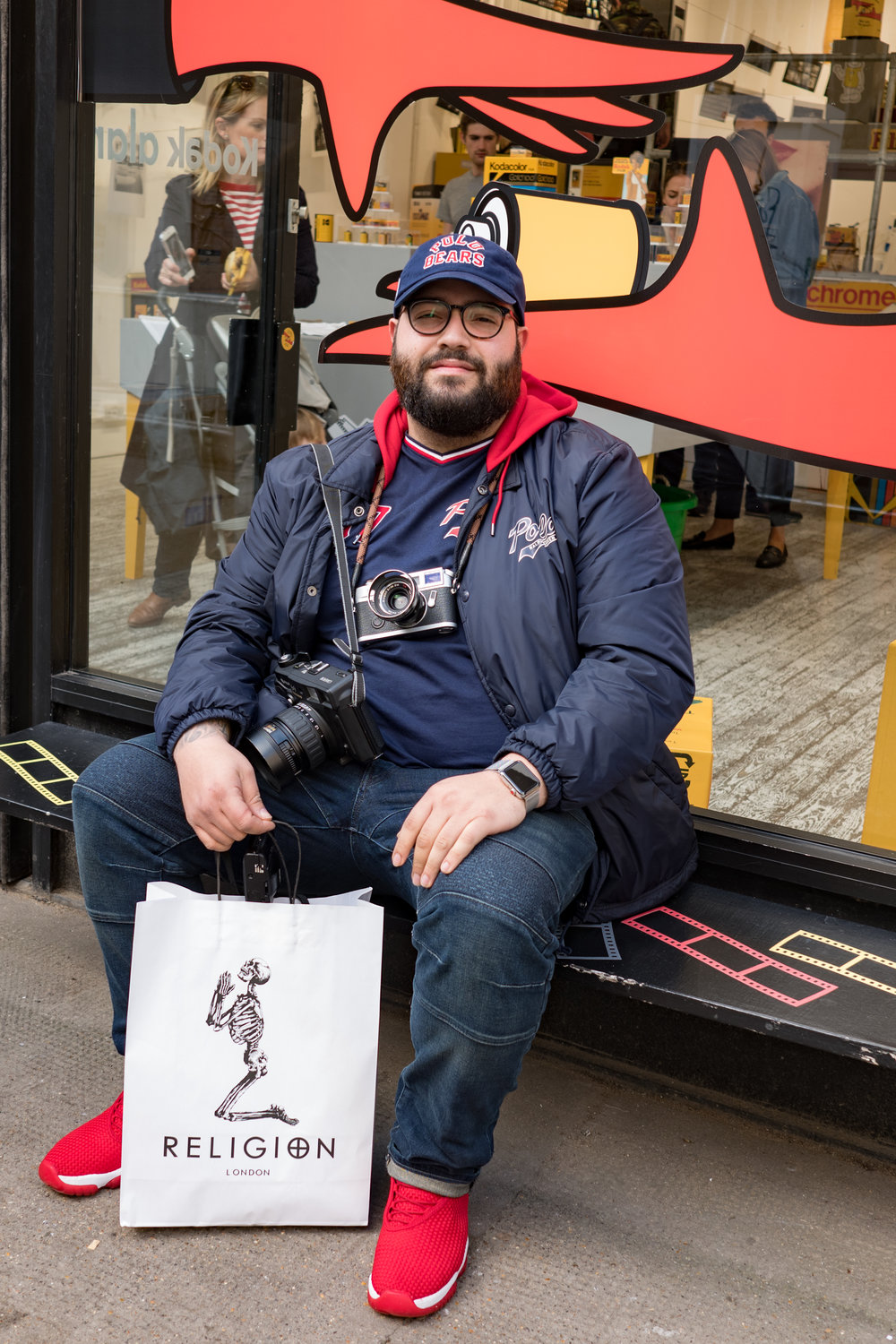
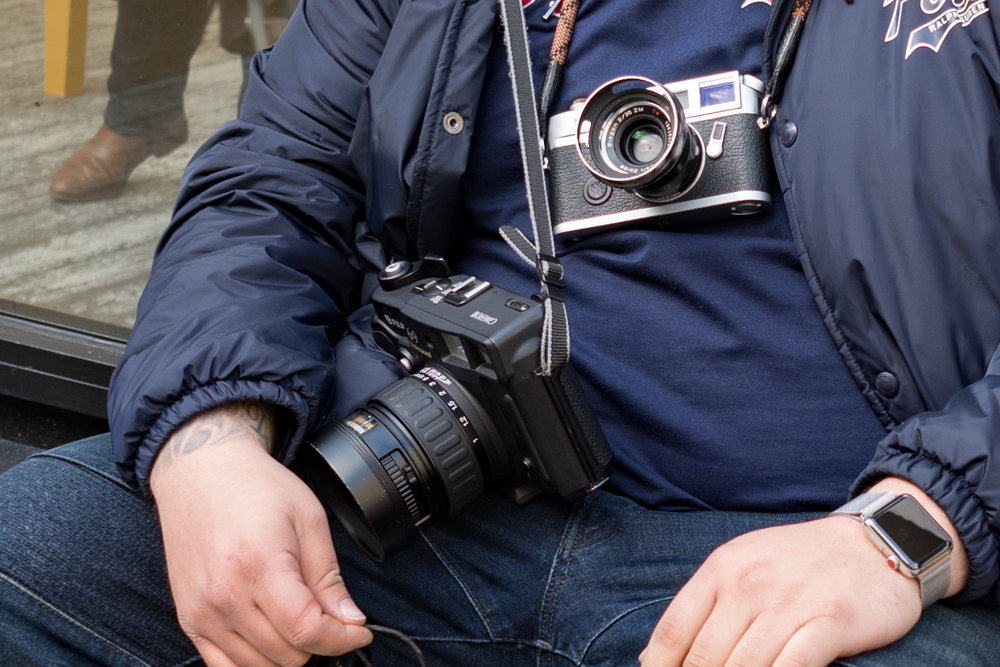
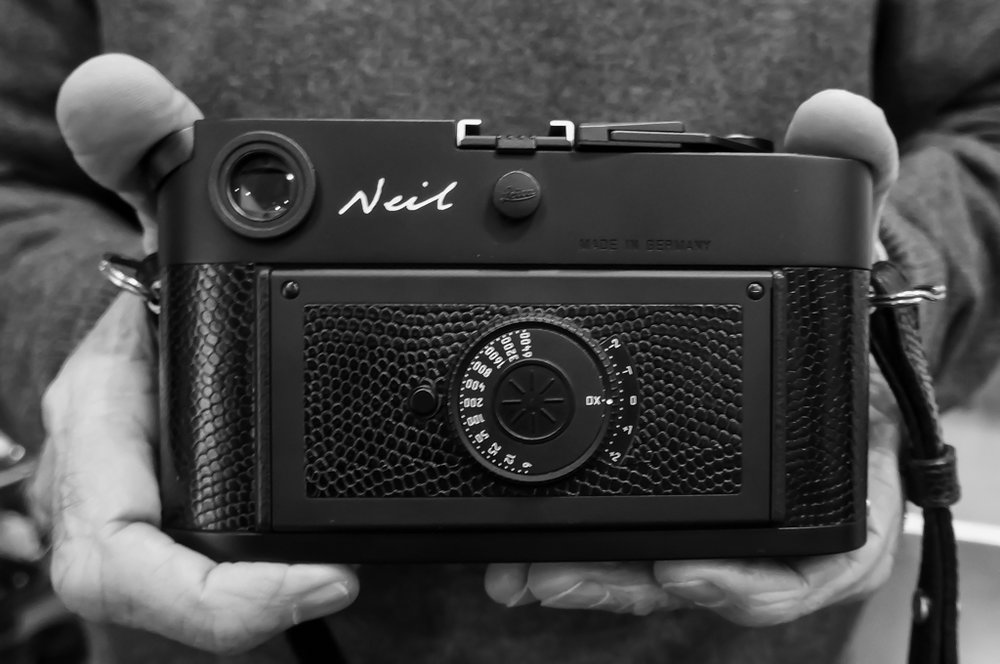
As I sat chatting to Nico another film camera was pushed into our faces as passer-by Simon exercised is black Contax G2 — quite the antidote to my and Nico’s M7s. Definitely Brick Lane is the place to go to find lots of film cameras in use.
In honour of the Film’s Not Dead theme of the day, I pulled my M7 — known affectionately as Neil — from the shelf and loaded a roll of Tri-X. I think I got some usable shots but sadly the pressures of journalism meant that all the pictures in this article were taken digitally, with my Leica CL and 18mm Elmarit-TL pancake.
But I gave Neil a good outing, using the 40mm f/1.2 Nokton kindly loaned by the Voigtländer UK distributors, Flaghead. I’m enjoying the unusual focal length — which I’ve often thought is idea for us ditherers who cannot decide whether to mount a 35mm or a 50mm optic. On the M7 or M10, or any rangefinder for that matter, it does take a bit of getting used to because of the lack of accurate framelines. The lens brings up the 50mm frame but you have to remember to shoot outside to a degree that comes only with practice. I’m still learning. On the CL or any other mirrorless camera, though, it works faultlessly thanks to the WYSIWYG human interface (read viewfinder…). I’ll write a bit more about this lens tomorrow.
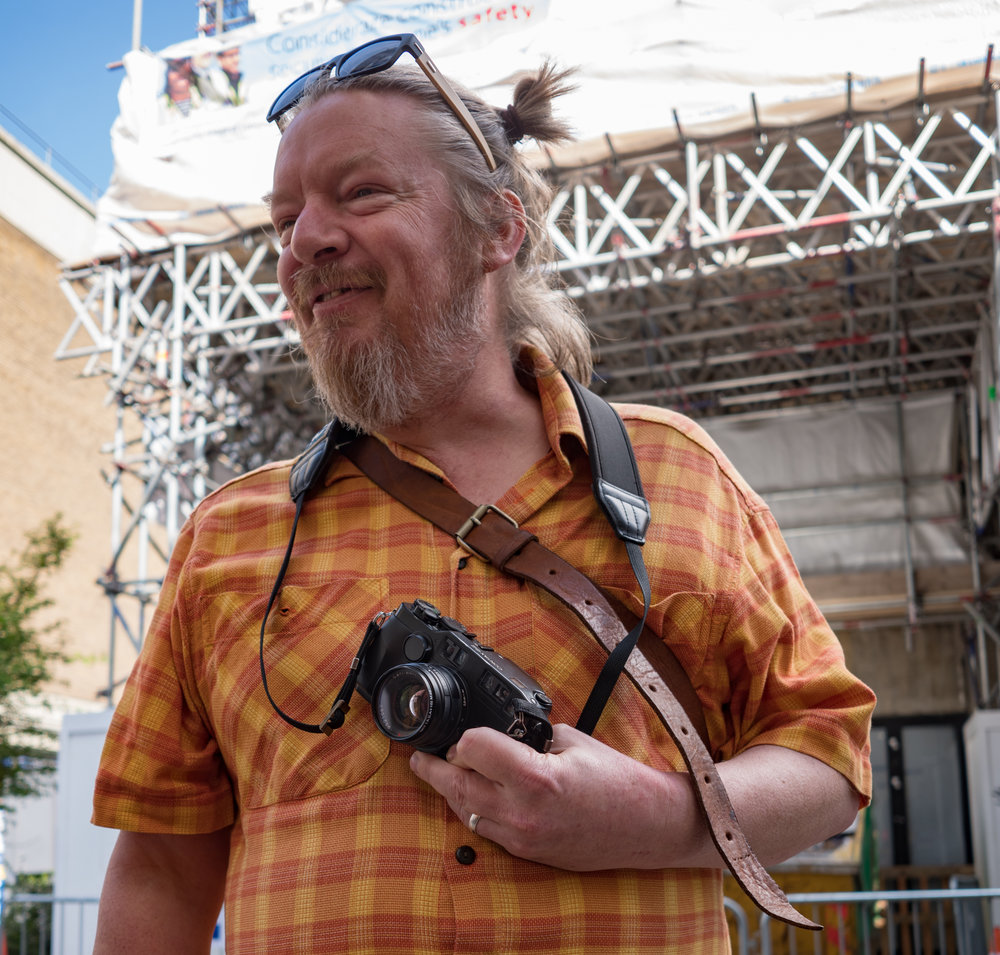

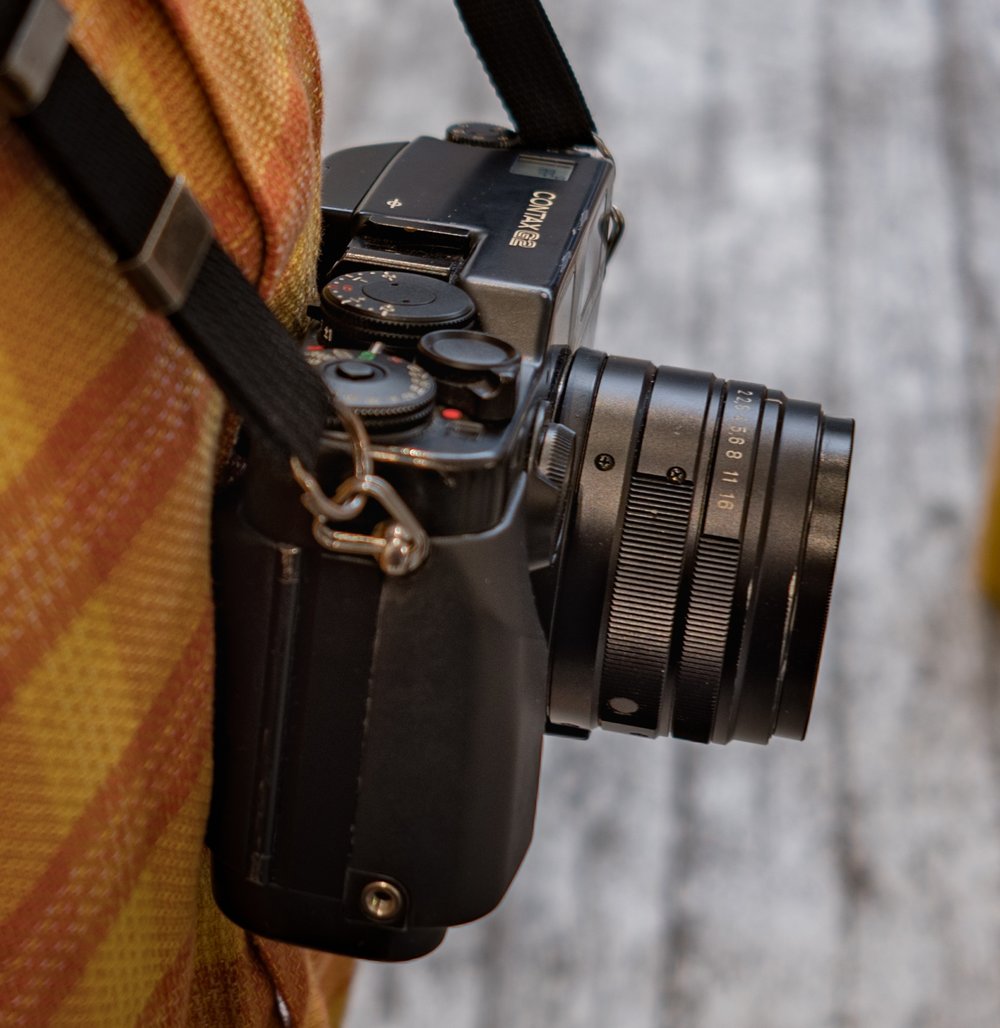
hey Mike
only seems fair to give you back the shot i took of you and Nico outside the shop
https://flic.kr/p/25BdVrJ
regards Simon
see you on the streets 🙂
Thanks, Simon. It was good to meet you and thanks for sharing the photograph…. A nice shot if I may say so.
Mike has highlighted something here which rarely gets mentioned but is implicit… The film people are very friendly, we size each other up by what is hanging out of our fronts, and then we start chatting like old friends, comparing notes, discussing bargains wot we have made.
Why this is, I don’t know, perhaps it is something to do with the lack of interest from the (barring Leica) major camera firms, perhaps we are all sharing in something that seems to be under attack and everything we own has interesting provenance. Whatever it is, adherents are both men and women of all ages and terroir.
While at MWClassic yesterday, I met up with the man who taught me developing and he seems to build most of his cameras from bits of plywood and "found" lenses or home made pinholes, apart from his Leica collection (of course).
I went on a printing course at Photofusion a couple months back and as the various students were introducing themselves, one fellow said that he liked "things". He turned out to have been darkroom printing for thirty years, so not a convert, merely someone who felt he could learn something from the master printer, Nick Jones.
The course was indeed an excellent way to spend a couple of evenings, and I recommend it. Developing and printing is also very absorbing. If one is not that interested in making a darkroom, there are plenty of public facilities that are available for modest hourly rates, but developing and home scanning take very little space and equipment at home.
Digital is not a thing, a wet printed photograph is a thing that you can hold. The same goes for the cameras when you load a film and wind it along, frame by frame.
As a very early adopter of the Leica CL, I love it, but I don’t get anywhere near the pleasure (or frustration) from any of the digital cameras as I do from my Leica M4, my Leica iii, my Nikon S2 or my currently under construction medium format rig, to say nothing of my pinhole cameras, or my collection of Japanese compact cameras.
N.B. World Pinhole Day is 29th April: http://pinholeday.org/
Lots of good points here, Stephen.
I agree 100%, Stephen. Nothing in digital beats getting a new box of Kodachrome slides through your letter box. And, of course, film cameras are much more interesting " things", as you friend on the printing course said.
The sense of surprise and mystery when your photos are developed is entirely absent from digital. There was a camera which Kodak produced in a last gasp attempt to retain the film market called the Kodak Advantix Preview. It had a screen on the back which would show the picture you had taken and you could then decide whether to write it to film or not. Needless to say the camera failed.
William
I’m trying again with film – Saturday was hot in New York and passing the Leica Store Soho I caught a glimpse of a mint Minolta CLE with its 40/2 lens – Without thinking too much I bought it and loaded with a roll of Portra 400 took a relaxed walk round Soho – not sure how they will come out but I did find the Minolta version much easier to use than the older Leica CL that I give up some time ago.
The best buys are often the ones you don’t think about too much. Just jump in at the deep end and make a decision! I’m very envious of your new toy!
(Perhaps you could edit that, Mike – below – to include the final chevrons, please!)
Sorry, David, but the system doesn’t allow me to edit comments from readers. I suspect this is a safeguard to prevent doctoring of others’ opinions. Anyway, the three links work as here. Sorry I can’t embed the links so its a case of copy and paste. Interesting shots, by the way.
http://edituk.com/Photos_files/Cameras%201.jpg
http://edituk.com/Photos_files/Cameras%202.jpg
http://edituk.com/Photos_files/Cameras%203.jpg
This reminded me of a photo-processing shop at the bottom of the main street in Nagasaki – in 2014, anyway – where you could have your films developed, and you could buy rolls of film, and you could also – preferably – RENT a film camera for a day, or a week, fill it with film, then bring it back and have your film(s) immediately developed.
(I hope this picture-insertion works properly here..)
<img src="http://edituk.com/Photos_files/Cameras%201.jpg">
It was run by a lovely man ..who didn’t speak a word of English, but had a great range of cameras to rent ..and not all of them Japanese, either!
<img src="http://edituk.com/Photos_files/Cameras%202.jpg">
(..No, I didn’t rent a camera ..I’ve too many already!)
<img src="http://edituk.com/Photos_files/Cameras%203.jpg">
.
Nice Images, thank you for sharing them.
Film interests me, but I am awaiting two very old film camera’s that where my grandmothers. Just convincing my very old grandfather to part with them is another story. If he ever does, then I will take to the streets with some film and see what I can do with them.
It is good to see this market ‘developing’. I also saw signs of the revival of the film market in Russia last week. I somehow doubt that this will reach the same level that vinyl has achieved in the music market, but it is good to see this happening, particularly with the younger demographic who have never used film before. Anyway I have been saying for some months that I must get out and about with my film cameras, so now that spring has arrived (very late this year) I must take out my Rolleiflex and maybe a vintage Leica or two.
William